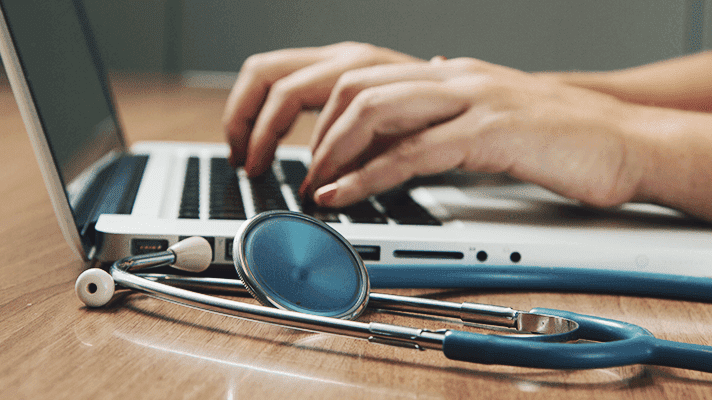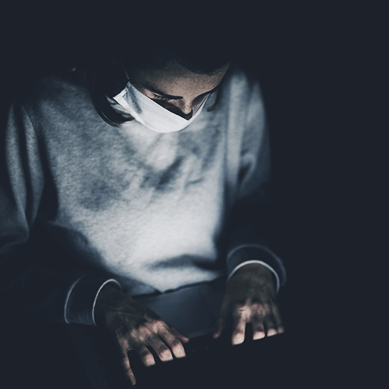New: Flexible service plans for Myra WAF. Learn more!
Home>
Digitalization in healthcare in demand as never before
Digitalization in healthcare in demand as never before
SECURITY INSIGHTS | 15 July 2020
Digitalization in healthcare continues to pick up speed. More and more patients want to benefit from digital products and methods of treatment. In the current exceptional corona situation, interest in innovative approaches is particularly high.


Corona treibt Telemedizin voran
Als Digitalisierungsbeschleuniger hat sich wie in vielen anderen Branchen das Coronavirus erwiesen. So hat laut der Umfrage des Bitkom vor allem die Nachfrage für Ferndiagnosen per Telemedizin deutlich angezogen. Mehrheitlich aus Sorge vor möglichen Infektionen haben die meisten Patienten (85 Prozent) auf Video-Sprechstunden beim Hausarzt zurückgegriffen. Außerdem versprach sich mehr als die Hälfte (54 Prozent) aller Nutzer von Video-Sprechstunden, schneller einen ärztlichen Rat zu erhalten. Auch bei jenen Patienten, die bislang nur persönlich in der Praxis behandelt wurden, herrscht eine große Offenheit für digitale Angebote: Fast jeder Zweite (45 Prozent) kann sich vorstellen, künftig eine Video-Sprechstunde wahrzunehmen.

Corona treibt Telemedizin voran
Als Digitalisierungsbeschleuniger hat sich wie in vielen anderen Branchen das Coronavirus erwiesen. So hat laut der Umfrage des Bitkom vor allem die Nachfrage für Ferndiagnosen per Telemedizin deutlich angezogen. Mehrheitlich aus Sorge vor möglichen Infektionen haben die meisten Patienten (85 Prozent) auf Video-Sprechstunden beim Hausarzt zurückgegriffen. Außerdem versprach sich mehr als die Hälfte (54 Prozent) aller Nutzer von Video-Sprechstunden, schneller einen ärztlichen Rat zu erhalten. Auch bei jenen Patienten, die bislang nur persönlich in der Praxis behandelt wurden, herrscht eine große Offenheit für digitale Angebote: Fast jeder Zweite (45 Prozent) kann sich vorstellen, künftig eine Video-Sprechstunde wahrzunehmen.

The use of medically prescribed health apps is also attracting considerable interest. Roughly 6 out of 10 patients surveyed can easily imagine using such an app. Fully 40 percent even want to actively ask their doctor about a prescription for an app. The first of these digital health assistants are to be launched as early as this summer; the costs will be covered by the German statutory health insurance companies.
Electronic health records: Patients given data sovereignty
The digitalization of healthcare in Germany will be taken to a new level with the introduction of the electronic health record (EHR) next year. In the future, this healthcare solution will give patients full access to their medical data, including information on results, diagnoses, therapeutic measures, reports on treatment, vaccinations, medication schedules, and more. Patients also have sovereignty over their own data. They decide which doctors, pharmacists, nurses or health insurance companies have access to the stored information. According to the plans of the Federal Ministry of Health, the EHR is to form the foundation of the digitized healthcare system. In practice, it is hoped that digitalization of this data will lead to considerable gains in efficiency. For example, when changing family doctors, the information required for treatment will be available with little effort.

Digitalization in healthcare as a global issue
The advance of digital medicine is a global trend, says Stuart Henderson, Senior Managing Director, Global Life Sciences Lead at Accenture: “The pandemic has changed patients’ attitudes and expectations as they embrace new digital tools. What we are seeing and hearing is that virtual healthcare is now an indispensable part of our lives.”
Digitalization in healthcare as a global issue
The advance of digital medicine is a global trend, says Stuart Henderson, Senior Managing Director, Global Life Sciences Lead at Accenture: “The pandemic has changed patients’ attitudes and expectations as they embrace new digital tools. What we are seeing and hearing is that virtual healthcare is now an indispensable part of our lives.”

No digitalization without cybersecurity
Not directly apparent to patients, but at the same time all the more important is the role of IT security, data protection, and compliance. Anyone who fails to address these issues will not be able to advance successful digitalization in healthcare and other sectors. For good reason, the healthcare sector is also one of the Critical Infrastructures (KRITIS) defined in the IT Security Act, which must meet particularly high cybersecurity requirements. The Coronavirus pandemic has shown how important it is for critical service providers to ensure a reliable supply to the public. In addition, the European General Data Protection Regulation (GDPR) governs the protection of sensitive patient data. Doctors, hospitals and operators of digital health programs need to secure this data using state-of-the-art technology.
Threat potential remains stagnant at a high level
The fact that the healthcare system cannot afford to have any digital vulnerabilities has been demonstrated several times in the past. In 2016, for example, a ransomware attack put the systems of the Lukas Hospital in Neuss out of action for weeks. In the same year, the WannaCry Trojan horse rampaged across the globe, also infiltrating numerous hospitals in Great Britain. At present, the health sector is once again high on the hit list of cybercriminals and hackers due to the tense situation caused by Covid-19, the attacks on clinics in France and the Czech Republic as well as on the World Health Organization (WHO) attest to the bleak state of affairs.
Myra Security as a reliable partner for the healthcare sector
As an IT security service provider, Myra develops and operates a reliable, certified Security-as-a-Service platform to protect digital processes. The technology monitors, analyzes and filters malicious internet traffic before virtual attacks can do any real harm. The Federal Ministry of Health (BMG), the Federal Centre for Health Education (BZgA) as well as banks and insurance companies, among others, rely on Myra’s solutions.
Myra DDoS Protection protects web applications, websites, DNS servers, and IT infrastructures reliably and fully automatically.
More information is available here